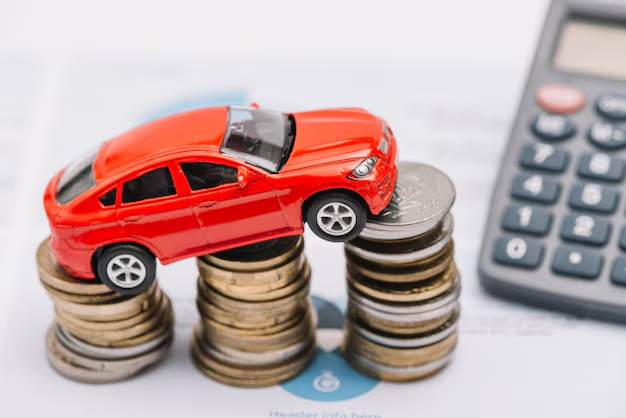Owning a car is a necessity for many, but traditional financing options may not suit everyone, especially those who lack the conventional documentation required by lenders. This is where Low Doc Car Loans come in, offering flexible solutions tailored to individuals with non-standard income documentation.
Introduction to Low Doc Car Loans
A Low Doc Car Loans (short for Low Documentation Car Loan) is a financing option designed for individuals who cannot provide the extensive paperwork typically required for traditional car loans. These loans cater to self-employed individuals, freelancers, and small business owners who may not have consistent income records or full financial statements.
How Low Doc Car Loans Work
Unlike traditional loans, Low Doc Car Loans rely on alternative forms of proof to evaluate the borrower’s financial stability. Here’s how they function:
- Minimal Paperwork: Instead of pay slips, applicants may submit bank statements, business activity statements (BAS), or accountant’s declarations.
- Quick Approvals: With fewer documents to verify, the approval process is faster.
- Collateral-Based Loans: The car itself often serves as security for the loan.
Who Qualifies for Low Doc Car Loans?
These loans are ideal for:
- Self-Employed Professionals: Those without a steady paycheck but with verifiable income streams.
- Freelancers and Gig Workers: Individuals working on contracts or in the gig economy.
- Small Business Owners: Entrepreneurs who need a vehicle for personal or business use but lack traditional financial documents.
Benefits of Low Doc Car Loans
Low Doc Car Loans offer several advantages:
- Reduced Paperwork: Streamlined application process.
- Accessibility: A viable option for those with unconventional income.
- Flexible Terms: Customizable repayment plans to suit borrower needs.
- Time-Saving: Faster processing compared to traditional loans.
Drawbacks of Low Doc Car Loans
While convenient, these loans have downsides:
- Higher Interest Rates: Lenders compensate for the risk with increased rates.
- Lower Loan Limits: Borrowing amounts may be restricted.
- Potential for Rejection: Without sufficient alternative documentation, approval may be difficult.
Common Requirements for Low Doc Car Loans
Despite being “low doc,” lenders still require basic information, including:
- ABN (Australian Business Number): For self-employed applicants.
- Bank Statements: Recent records showing income and expenses.
- Proof of Asset Ownership: To establish creditworthiness.
- Identification: Driver’s license, passport, or similar ID.
How to Apply for a Low Doc Car Loan
Follow these steps to secure a Low Doc Car Loan:
- Research Lenders: Compare loan terms, interest rates, and customer reviews.
- Gather Documentation: Prepare alternative proof of income.
- Submit Application: Fill out the lender’s form, either online or in person.
- Await Approval: Lenders review your application and notify you of the decision.
- Finalize the Loan: Sign the agreement and receive the funds.
Low Doc Car Loans vs. Traditional Car Loans
| Feature | Low Doc Car Loan | Traditional Car Loan |
|---|---|---|
| Documentation | Minimal | Extensive |
| Approval Time | Faster | Slower |
| Interest Rates | Higher | Lower |
| Target Audience | Self-employed, irregular earners | Salaried employees, steady income |
Interest Rates on Low Doc Car Loans
Interest rates on Low Doc Car Loans depend on:
- Credit Score: Higher scores yield lower rates.
- Collateral Value: The car’s value influences rates.
- Market Conditions: Economic factors and lender policies.
Tips to Get Approved for Low Doc Car Loans
- Maintain Good Credit: Pay off debts and ensure timely payments.
- Provide Accurate Information: Submit valid and consistent documents.
- Offer a Deposit: A larger down payment can improve approval chances.
- Choose the Right Lender: Work with a lender experienced in Low Doc loans.
Alternatives to Low Doc Car Loans
If Low Doc loans aren’t suitable, consider:
- Personal Loans: Unsecured options based on creditworthiness.
- Hire Purchase: A fixed-term lease leading to ownership.
- Leasing: Renting a vehicle for business use.
How Lenders Assess Low Doc Loan Applications
Lenders evaluate:
- Bank Records: Consistent income deposits.
- Collateral: The car’s value as security.
- Business Performance: Financial health indicated by BAS or profit statements.
Low Doc Car Loans for Businesses
For small businesses, Low Doc Car Loans enable vehicle financing without the need for full financial records. These loans support entrepreneurs in growing their operations.
Risks Associated with Low Doc Car Loans
- Overborrowing: Borrowing more than you can repay.
- Variable Terms: Unpredictable interest rates in some cases.
- Financial Strain: High repayments impacting cash flow.
Refinancing a Low Doc Car Loan
Borrowers can refinance to:
- Lower interest rates.
- Extend repayment terms.
- Consolidate multiple debts into a single loan.
Top Providers of Low Doc Car Loans
Popular lenders include:
- Pepper Money: Known for flexible terms.
- Liberty Financial: Offers competitive rates.
- NAB: Reliable for small businesses.
Frequently Asked Questions (FAQs)
1. What is a Low Doc Car Loan?
A loan option requiring minimal documentation, aimed at self-employed individuals and freelancers.
2. Are Low Doc Car Loans expensive?
Interest rates are typically higher, but terms vary by lender.
3. Do I need a good credit score?
A higher score improves approval chances, but some lenders cater to low credit borrowers.
4. Can businesses apply for Low Doc Car Loans?
Yes, they are suitable for business vehicle financing.
5. What’s the difference between Low Doc and No Doc loans?
Low Doc loans require some documents; No Doc loans have no such requirements but may have stricter terms.
6. Is a deposit mandatory?
Not always, but offering a deposit can improve loan terms.


